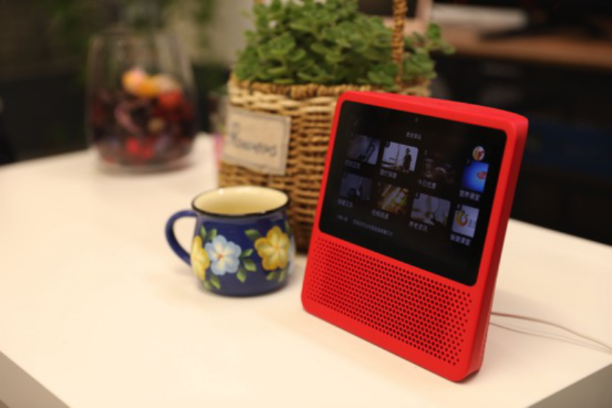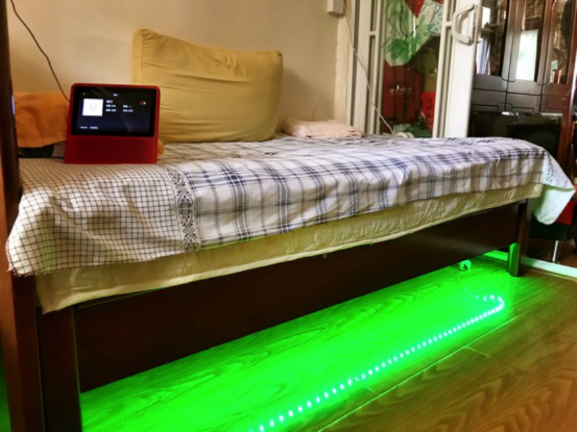Smart home products make life easier
By Xu Qing, People’s Daily
Photo shows a smart display exhibited at a nursing service center in Dashilan neighborhood, Xicheng district, Beijing. (Photo from China Philanthropy Times)
At an elderly care office in Dashilan neighborhood, Xicheng district, Beijing, a smart display was installed, offering health consultancy and care services for the elderly in the neighborhood through video calls.
Such smart displays were also handed out by the office to some senior residents in need in the neighborhood. “The device not only facilitates the daily life of the elderly, but also improves the efficiency of our service,” said Ma Naichi, head of the office, adding that it also reduces human contacts during COVID-19 response.
With the smart displays, the elderly can control household appliances, check weather forecast, and listen to music. Besides, the smart displays are also connected to a nursing service center co-established by the neighborhood and Chinese tech firm Baidu, which offers food delivery, maintenance and consultation services for the elderly.
Smart displays registered a shipment of 45.89 million units last year in China, a year-on-year increase of 109.7 percent, demonstrating the vitality of the market, according to a report by International Data Corporation (IDC), a premier global market intelligence firm.
While employing intelligent voice interaction technology, smart displays suit the application scenarios in families and are a typical application of conversational AI, said Jing Kun, vice president of Baidu and general manager of the company’s Smart Living Group.
Many other smart products have also been employed by communities to prevent and control COVID-19 and turned out to be very effective and convenient, including intelligent temperature measuring instruments, cell phone-controlled switches and smart elevators that automatically disperse passengers.
At the same time, smart home devices such as smart locks and robot vacuums have already been widely applied in Chinese people’s daily life.
At a prototype smart home designed by a Beijing-based Internet enterprise, lights, air conditioners and air purifiers are turned on automatically under voice control. The television and lights in the living room are controlled by voice, while an intelligent alarm system in the kitchen is monitoring gas, water and electricity safety all the time. Besides, the curtains in the bedrooms are raised automatically in the morning. The robot vacuum can start working even when there is no one in the house through remote control, and the smart locks and cameras installed will generate real-time video and images.
Photo shows LED strip lights under the bed frame installed for a senior citizen by the nursing service center. The LED strip, controlled by a smart display, is both convenient and safe to use when the senior citizen gets up at night. (Photo from China Philanthropy Times)
“My robot vacuum and smart washing machine have really made my life easier,” said a programmer surnamed Wang in Beijing’s Haidian district, adding that these smart home products have relieved him very much from household duties.
An online shopping festival was held from April 28 to May 10 by the Ministry of Commerce, the Ministry of Industry and Information Technology, the State Post Bureau and the China Consumers’ Association, during which the sales of smart products experienced a 20-percent rise.
China’s smart home market is expected to reach over 581.9 billion yuan ($83 billion) in 2020, according to iResearch, a leading provider of online audience measurement and consumer insights in China.
On April 28, the Shanghai Consumer Council issued a list of 21 consumption experience stores in the city that best integrate science, fashion and culture, including the smart home experience stores of Haier – China’s leading home appliances and consumer electronics company, and Chinese tech giant Huawei.
With the full-speed advancement of 5G construction and application, as well as its development and security guarantee, the smart lifestyle displayed in the experience halls will soon become a reality in more and more households in China.














